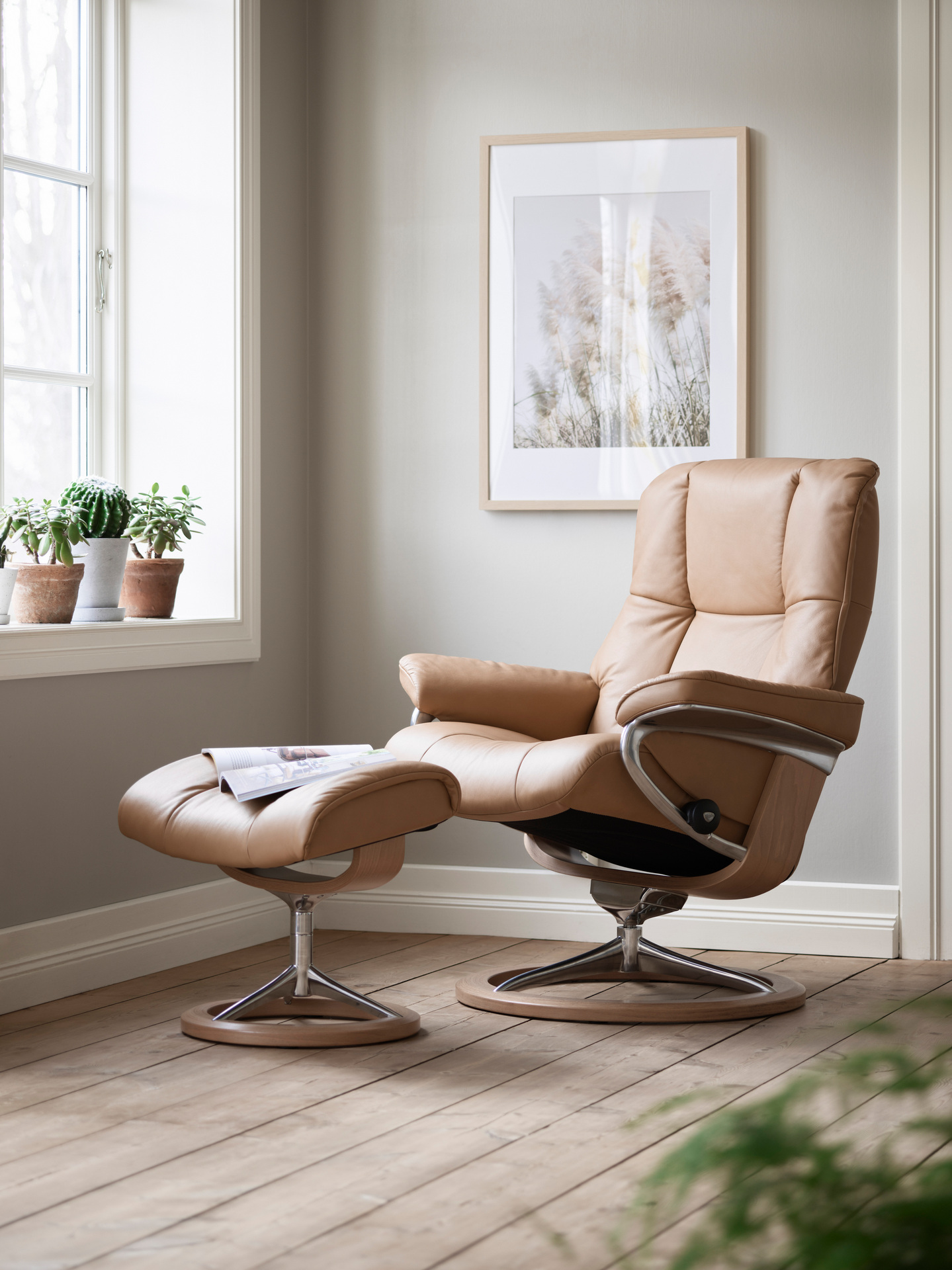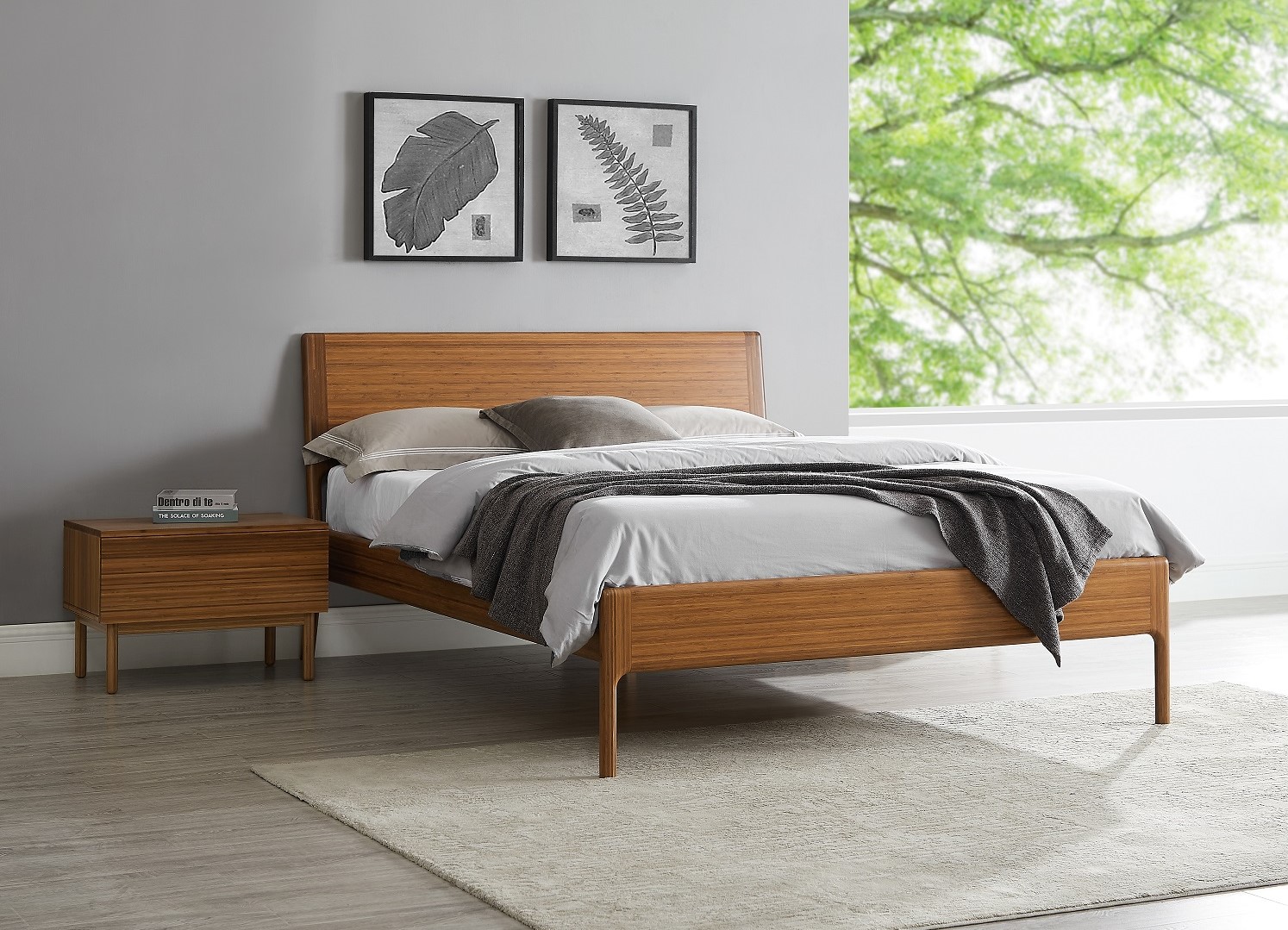Copenhagen is a family-owned, contemporary furniture store with locations in Arizona and Texas passionate about the intersection of contemporary design and sustainability. Rooted in designs focused on simplicity, practicality and elegance, Copenhagen Living strives to provide customers with quality products that are built to last. Copenhagen Living sells products from several high-quality and eco-conscious brands, including Skovby, Luonto and Greenington, all of which apply sustainable practices to their business and production models.
Skovby, a furniture manufacturing company in Denmark, makes all its furniture from natural materials. Out of respect for both people and the environment, Skovby obtains wood from abundant tree populations in Europe, then replaces any resulting deforestation. This process promotes ecosystem diversity, thus preserving the natural environment of that area. As part of Skovby’s carbon-neutral production plan, the company uses all its extra wood as fuel and all wood chips and shavings for on-site heating. To further champion sustainability, Skovby is a member of the Danish Furniture Makers’ Quality Control and a donor to the Growing Trees Network Foundation. Both organizations invest resources to reduce carbon footprints in manufacturing and promote healthy environments.
 In addition, Skovby designs, builds and produces all its furniture in the same location. This localized business model significantly decreases the company’s carbon footprint, since the chain of raw materials to production is short. Because materials are not transported long distances during development, Skovby can maintain close ties between cabinetmakers, technicians and architects. As a result, Skovby creates collaborative and innovative designs that are built to last. One product that illustrates its sustainable innovation is the Skovby Stackable Stool. This product is made of leftover pieces cut from round and elliptical tables that are then joined into a stackable seat with a dynamic pattern.
In addition, Skovby designs, builds and produces all its furniture in the same location. This localized business model significantly decreases the company’s carbon footprint, since the chain of raw materials to production is short. Because materials are not transported long distances during development, Skovby can maintain close ties between cabinetmakers, technicians and architects. As a result, Skovby creates collaborative and innovative designs that are built to last. One product that illustrates its sustainable innovation is the Skovby Stackable Stool. This product is made of leftover pieces cut from round and elliptical tables that are then joined into a stackable seat with a dynamic pattern.
Luonto is another leading sustainable furniture brand sold by Copenhagen Living. By sourcing the highest quality materials and using only the parts essential for design, Luonto is able to minimize the resources used in production. This drastically reduces not only its carbon footprint, but also the customers’, by providing quality pieces that last at least 10 years.
In addition, Luonto factories process and manufacture raw materials in a way that avoids unnecessary waste. According to the company website, “Our sustainable manufacturing practices are just part of our heritage, it’s done simply because it’s who we are and where we come from.” As an example, the Monika Sleeper features a “nest” mechanism, where the mattress is compactly folded underneath the seat, and can be pulled out one side at a time. It also features high-quality construction and custom options that reflects Luonto’s commitment to long-lasting design and functional products.
One way Luonto puts their principles into practice is by reusing their byproducts. For instance, they repurpose the nearly six tons of sawdust produced weekly from the wood cutting process by compressing the dust into pellets that fuel their production furnaces – as well as local businesses – during the winter. Fabric is also reused to make a sound-dampening felt on some of Luonto’s functional furniture. Luonto believes functional furniture built today can last a generation, as such pieces “create the very environments in which we live, where moments are formed, and memories made.”
Greenington, another brand sold by Copenhagen Living, uses material from bamboo forests in China to produce furniture that is both eco-conscious and sustainable. Bamboo – technically a grass and not a tree – is one of the best carbon sequestration plants, releasing approximately 35% more oxygen than an equivalent stand of trees. With that in mind, each bamboo culm used in Greenington’s production is selected and harvested by local farmers who leave the root system intact. This process not only allows new shoots to emerge the following year, but preserves the forest’s ecosystem. During manufacturing, Greenington uses 100% of the harvested bamboo material including the sawdust, which is used to generate steam for the dry kiln room and press machine.
 Another part of Greenington’s sustainable approach is finding the best fitted materials and finishes. A Greenington spokesperson says, “The design is also about what happens next. The details feature the beauty of craftsmen, [while] the form shapes sustainable furniture made of bamboo.” This process comes from ideas and solutions based on user research to create products that shift categories and add value to people’s lives. By creating sustainable and durable pieces, Greenington embodies the intersection of environmental and consumer well-being.
Another part of Greenington’s sustainable approach is finding the best fitted materials and finishes. A Greenington spokesperson says, “The design is also about what happens next. The details feature the beauty of craftsmen, [while] the form shapes sustainable furniture made of bamboo.” This process comes from ideas and solutions based on user research to create products that shift categories and add value to people’s lives. By creating sustainable and durable pieces, Greenington embodies the intersection of environmental and consumer well-being.
The sustainable design philosophy is reflected in the Azara dining collection which features contemporary styling, clean lines and accents in exotic Tiger bamboo. Azara’s bedroom collection is also available with light and dark variations of Tiger bamboo, and comes in queen, king and California king sizes.
Sustainable furniture from Greenington, Luonto and Skovby are available from Copenhagen in Phoenix.
keep up with all of Green Living’s original content online and social media.





